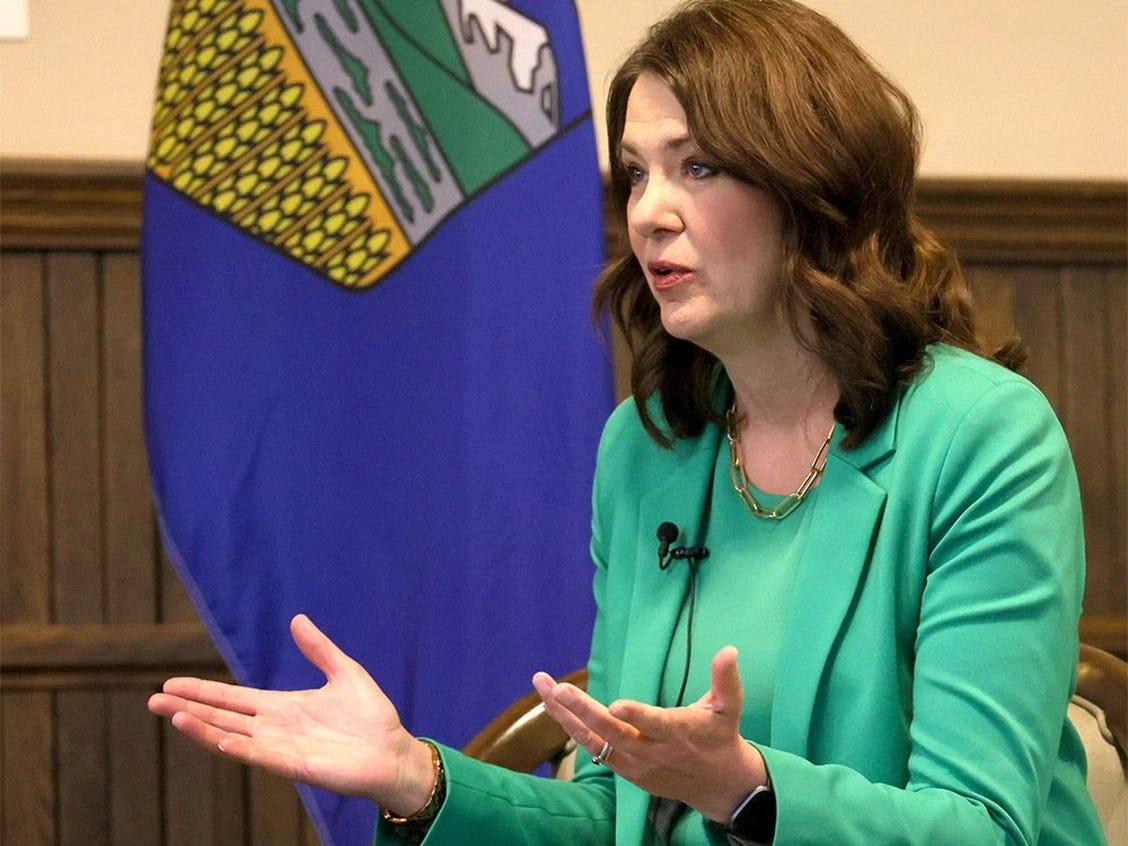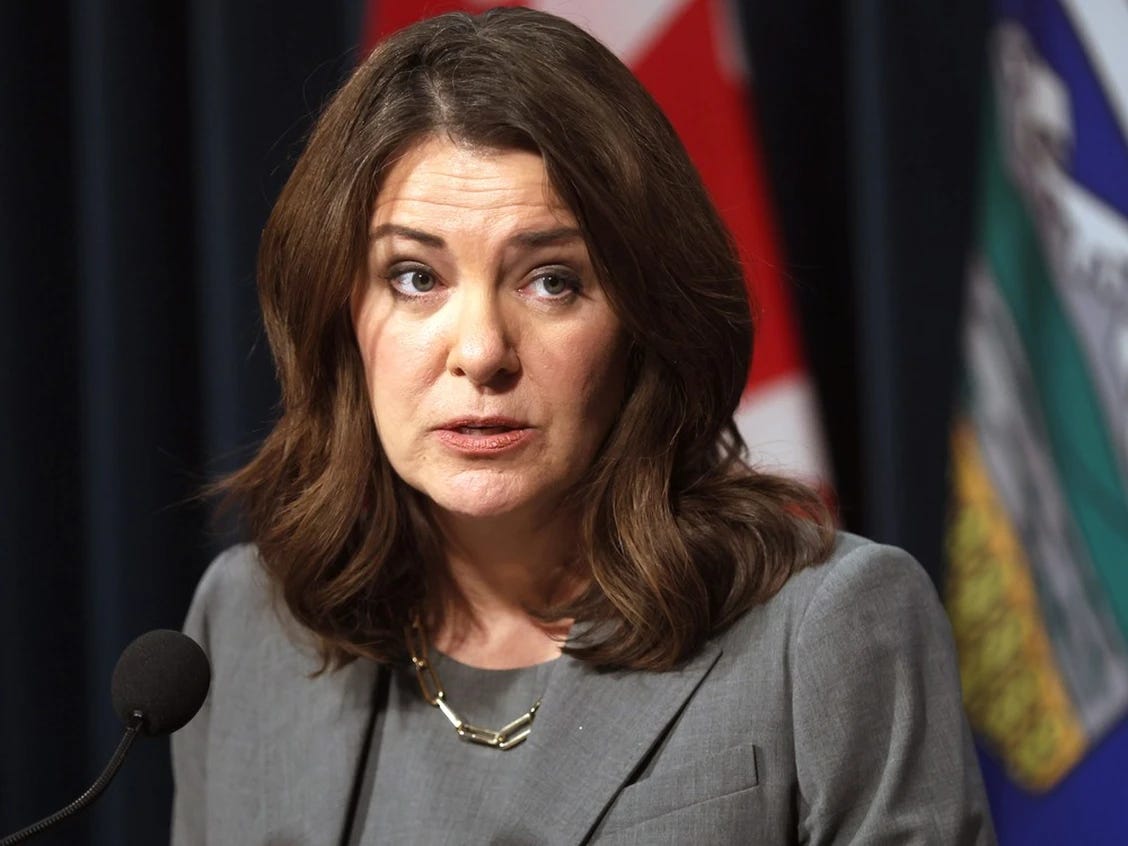Battling Challenges: Alberta's 2023 Agricultural Journey Through Drought, Strikes, and Renewables
In 2023, Alberta's agriculture sector grappled with significant challenges, including the emergence of White Nose Syndrome threatening vital pest control by bats. The egg industry defended stability practices amidst disruptions like avian influenza, while Cypress County sought more authority to counter agricultural losses to renewable power development. A strike by grain inspectors raised fears of repercussions on exports and farmer income, and seeding progress lagged due to cool temperatures. The Do More Agriculture Foundation addressed mental health with the #TalkItOut campaign. Drought conditions led to a shortage of irrigation water, impacting the growing season. Cypress County declared a local agricultural disaster, implemented water conservation measures, and shut down irrigation districts early. The AgriStability Program deadline was extended due to wildfires, and Alberta Wheat and Barley Commissions amalgamated into Alberta Grains. Crop and livestock prices softened in November, with concerns deepening about a warm winter exacerbating drought issues for 2024.
Alberta UCP Sparks Controversy with Gift Limit Increase for Elected Officials: Critics Question Priorities Amid Rising Costs
The Alberta UCP government's decision to increase the limits on gifts for elected officials has sparked controversy. A bill passed in December allowed the cabinet to change the value of permissible gifts without assembly debate, raising concerns about potential self-enrichment by politicians. The new rules, outlined in cabinet orders just before Christmas, increased the limits for non-monetary gifts and event tickets from $200 and $400 to $500, with the possibility of exceeding $1,000 if reported to the ethics commissioner. Critics, including the NDP justice critic Irfan Sabir, argue that the move is poorly received amid concerns about rising costs of living for many Albertans. Some defend the change, citing the need to adjust to inflation and streamline the process through cabinet orders. Political scientist Duane Bratt suggests the perception of politicians benefiting personally from such changes might overshadow the practical policy adjustments.
From Scandals to Sovereignty: Alberta's Rollercoaster Year in Politics Under Premier Danielle Smith
The year in Alberta politics has been marked by turmoil, scandals, and division. Premier Danielle Smith faced challenges, including controversy over a phone call with street preacher Artur Pawlowski, leading to an ethics investigation. Despite this, polls did not indicate significant damage to Smith's popularity. The government's actions, such as purchasing children's pain medication and firing the Alberta Health Services board, faced criticism. Health care privatization efforts with Dynalife Labs failed, leading to a return to public testing. Pre-election challenges, like Smith's past support for private health care and an Alberta pension plan, surfaced. The UCP won the election, partly attributed to the Sovereignty Act and pocketbook measures, but challenges persist, including the ongoing push for an Alberta pension plan and opposition to federal climate measures. Despite starting the year in trouble, Smith remains in charge, but 2024 is expected to bring continued challenges.
Premier Danielle Smith's 2024 Agenda: Legal Showdowns, Pension Plans, and Political Controversy in Alberta
In 2024, Alberta's political landscape is expected to mirror Premier Danielle Smith's approach in 2023. Smith, despite projecting a moderate image during the election campaign, is set to engage in legal battles with the federal government, proceed with plans for an Alberta Pension Plan despite public opposition, and codify protection for those against pandemic restrictions. Despite initial public skepticism, especially regarding the pension plan, Smith remains determined to pursue these controversial policies. Her focus for 2024 includes challenging federal Environment Minister Steven Guilbeault over proposed emissions caps in the oil and gas industry. Despite a more moderate image during the election, Smith's combative and controversial policies from 2022 are resurfacing, indicating a bumpy political ride for Alberta and beyond.
City of Edmonton Takes Action: Closes High-Risk Homeless Encampments to Ensure Public Safety
The City of Edmonton recently closed a high-risk homeless encampment near the Herb Jamieson Centre, removing 20 structures and 19 occupants without any arrests. This follows another closure six blocks east the day before. The city and a human rights group previously agreed to dismantle eight camps considered public safety risks, with an interim order in place until January 11. The Coalition for Justice and Human Rights, which sought the order, is suing the city over its camp removal policy. Concerns include insufficient shelter space, especially for families and those with pets, and the city assesses encampments as high-risk based on factors such as fire hazards, drug use, and proximity to amenities. Tragically, two individuals died in encampment fires in early November, contributing to the city's efforts to address safety concerns.
Banking Revolution: What to Expect in Canada's Financial Landscape in 2024
In 2024, significant developments are expected in the Canadian banking sector. RBC's $13.5-billion takeover of HSBC Canada has received federal approval, raising concerns about competition. Key changes include the introduction of an open banking framework, a unified banking ombudsman for streamlined complaint resolution, and efforts by Payments Canada to achieve faster payment processing. Additionally, measures against predatory lending, such as lower interest rate caps, are in progress. However, the government has yet to fulfill its commitment to comprehensive price reviews. These initiatives reflect ongoing efforts to enhance consumer protection and innovation in the Canadian banking landscape.
AI Reshapes Healthcare: Key Developments and Ethical Considerations in Canada for 2024
In 2023, the burgeoning role of artificial intelligence (AI) in healthcare, exemplified by technologies like ChatGPT, takes center stage, prompting the World Health Organization to issue regulatory recommendations. As Canada ventures into 2024, pivotal advancements in AI within the healthcare landscape come to light. Notable developments include AI's potential to revolutionize patient care by processing a spectrum of data modalities, beyond conventional sources like X-rays, promising more precise diagnoses and personalized treatment plans. Moreover, the efficiency of AI in swiftly analyzing extensive datasets stands out, offering the prospect of expediting the evaluation of clinical trial results and thereby accelerating the assessment of new medications. With a keen eye on data quality, experts stress the significance of reliable sources and the reduction of biases to enhance the accuracy of AI-generated outcomes. The empowering potential of AI extends to patient self-management, where technologies like wearables aid in monitoring health conditions, from heart failure to remote wound assessment. Ethical considerations and robust regulation emerge as critical focal points, emphasizing the need for comprehensive evaluations, public policy, and governance to guide the responsible application of AI in healthcare, addressing concerns like patient privacy and data ownership.










